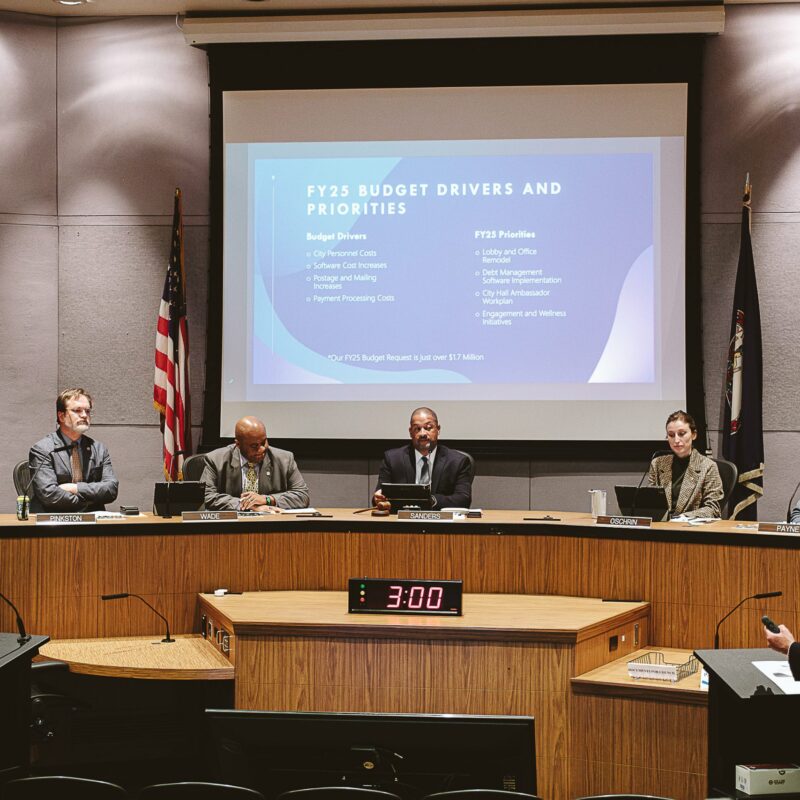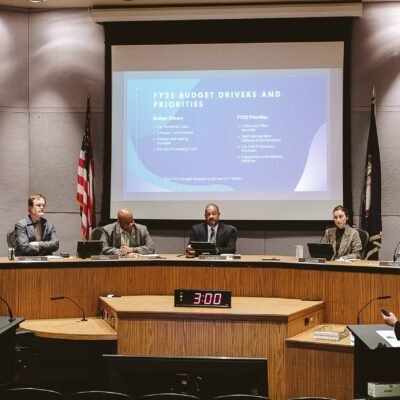With the Ivy landfill no longer a landfill and expected to surpass its permit limit next year, reworking the area’s waste disposal plans has become urgent. About 50 people showed up at a December 4 info session held by the Rivanna Solid Waste Authority (RSWA) meeting on waste disposal in the city and county.
 The Ivy landfill is about to exceed its permitted limit, which has the Rivanna Solid Waste Authority trying to figure out what to do next. |
A few members of the public showed up to keep RSWA from backsliding on its responsibility for the Ivy site—the landfill was closed in the 1990s after Ivy residents filed a lawsuit over ground contamination—but most were there to encourage the authority to increase recycling and "diversion" over our current, paltry 38 percent rate.
Consulting firm Gershman, Brickner & Bratton (GBB), hired by RSWA to sort out its options, laid out six possibilities for the future, most of which call for adding more convenient drop-off points for recycling and trash in the county. The potential plans scale up from there: One would include curbside pickup for the urban parts of the county, followed by building the authority’s own materials reclamation facility, which would allow the authority to directly sell recycled plastic. The most expensive scenario, with a price tag of $12 million to $20 million, adds on a waste-to-fuel plant and would divert 93 percent of our total waste from going to a landfill.
After the consultant’s presentation, the meeting broke up into four discussion groups to give feedback on the options. In one group, Harvey Gershman, the president of GBB, pointed out the eye-popping fact that a ton of reclaimed plastic is now worth over $100 on the open market. While building a local reclamation facility would require about $7 million to $10 million upfront for construction, proceeds from selling plastic would help even out costs in the long run.
Since most of the citizens there wanted to increase the recycling rate and reduce our waste profile, all breakout groups unsurprisingly endorsed building the reclamation facility or the waste-to-energy plant, with a majority of the people endorsing both. "You’re not the ones we need to talk to about recycling here," Gershman said.
At the end, Gershman emphasized that this meeting was discussion only, and no decisions or planning have been made. The city and the county would have to agree on how to provide funding for the early stages of the plan, and determine sites for the new transfer points, facilities and the waste-to-fuel plant.
C-VILLE welcomes news tips from readers. Send them to news@c-ville.com.





